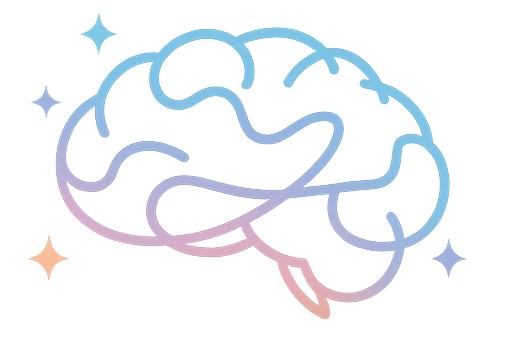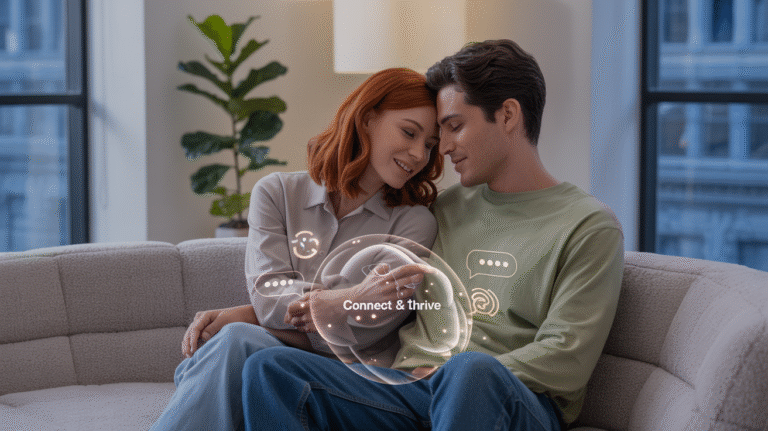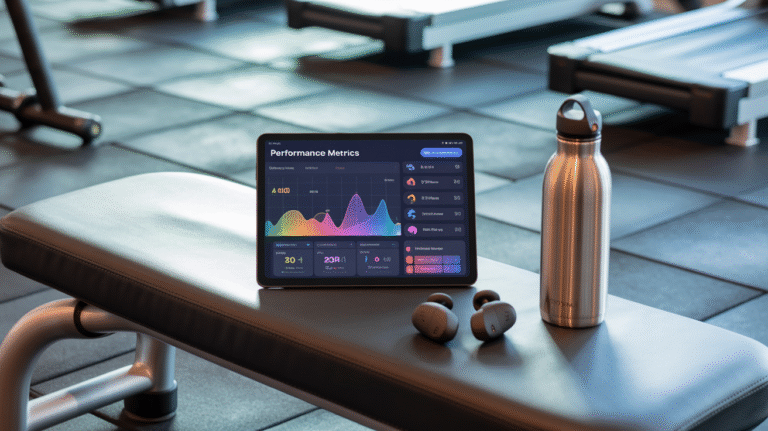Quick Summary
I have recently tried an AI self-care routine and was surprised by how well it combined personalized wellness suggestions, mindfulness reminders, and habit tracking into my routine. Personalized morning meditations and exercise suggestions turned this digital assistant into a great tool to keep me on track and motivated, which enhanced my mood, productivity, and overall well-being.
It also got to know my preferences in four weeks, like preferred meditation time, dietary restrictions, and sleep patterns, and adapted to them in real time. This bias-forward review will show the positive effects of AI-driven self-care, compare the best platforms, pricing plans, advantages and disadvantages, and why you should consider letting AI customize your wellness plan.
1. What Is a Self-Care Routine?
An AI self-care routine is a personalized wellness plan that employs artificial intelligence to develop daily routines, mental health check-ins, nutrition tips, and fitness reminders based on your individual profile. These apps utilize the data collected by wearables, mood journals, and self-reported preferences to provide you with in-depth self-care suggestions that adapt to you.
2. How It Works
The general process of AI-driven self-care platforms is a five-step cycle:
- Data Collection: You input baseline information–age, stress levels, dietary restrictions, sleep habits–and wearables.
- Machine Learning Analysis: Algorithms identify patterns in your health and behavior data.
- Customized Planning: The system generates daily schedules, such as meditation, exercise, meals, and sleep hygiene.
- Real-Time Adaptation: The AI will adjust the time, intensity, or content of self-care reminders according to your progress recording.
- Feedback Loop: You will rate your satisfaction and mood, which will help the AI to make better recommendations in the future.
With repetition of the cycle, the routine becomes more precise, and every suggestion will be in line with your changing needs.
3. The Advantages of a Self-Care Routine You Can Not Afford to Miss
The modern lifestyle is hectic and does not allow much time to be dedicated to structured self-care. Nevertheless, an AI self-care routine provides:
- Consistent Accountability: Automated reminders to meditate, drink water, and move keep you accountable.
- Personalization at Scale: Programs are tailored to your personal preferences and life changes.
- Holistic Approach: Integrates mental, physical and nutritional wellness into a holistic approach.
- Data-Driven Insights: The visual dashboards will give information on mood, activity, and sleep patterns.
- Affordability: Subscription models are less expensive than employing several coaches or therapists.

4. AI Self-Care Routine vs. Traditional Self-Care Methods
| Feature | AI Self-Care Routine | Traditional Methods |
|---|---|---|
| Personalization | Dynamic, data-driven | Static, one-size-fits-all |
| Consistency | Automated reminders, 24/7 availability | Reliant on self-discipline |
| Cost | $5–$30/month | $50–$200+ per session |
| Adaptability | Learns from feedback | Manual adjustments required |
| Scope | Integrates mental, physical, nutritional | Often focuses on one area |
5. Pricing Comparison
| Platform | Free Tier | Basic Plan (Monthly) | Premium Plan (Monthly) | Key Features |
| WellMind AI | 7-day trial | $7.99 | $24.99 | Mood tracking, guided meditations |
| SelfCareBot | Limited features | $5.99 | $19.99 | AI journaling, habit reminders |
| CareGenius | 5 routines/week | $9.99 | $29.99 | Diet tips, sleep coaching, workout guides |
6. Pros and Cons
| Pros | Cons |
| Highly personalized daily routines | Dependent on accurate user input |
| Cost-effective compared to multiple coaches | Potential data privacy concerns |
| Automatic habit reinforcement | May lack human empathy in complex situations |
| Unified dashboard for holistic wellness | Requires consistent device use |
| Continuous improvement via feedback loop | Algorithmic bias risks |
7. Features of Self-Care Routine to Consider
- Adaptive Meditation Lengths: Adapts to your stress levels
- Nutrition and Hydration Reminders: Reminders to eat and drink
- Sentiment Analysis: Records emotional trends
- Sleep Quality Coaching: Personalized wind-down routines
- Integration with Wearables: Syncs heart rate, steps, and sleep data
8. Real-Life Transformations
Numerous users have reported tangible improvements: subscribers to WellMind AI have reported a 35 percent decrease in reported stress in two weeks, CareGenius users have increased their daily step counts by 20 percent and improved their sleep efficiency by 15 percent.
9. The Future of Wellness
New technologies are voice-controlled self-care assistants, VR-based relaxation programs, and AI-based community support groups. With the maturity of AI ethics, we will see more caring algorithms that are privacy-respecting and well-being-enhancing.
10. Manage Your Health with AI Self-Care Routine
Ready to change your everyday practices? Adopt an AI self-care regimen to receive regular, personalized care and see your well-being thrive.
Individualized AI Self-Care Routine Recommendations
- Start small: allow one reminder at a time.
- Give candid feedback to improve AI recommendations.
- Combine AI with human check-ins.
Questions You May Have
Q1: Is AI self-care routine safe to mental health?
Yes, the reputable platforms follow the privacy standards and are intended to supplement, rather than substitute, professional therapy, particularly in mild to moderate cases.
Q2: Do I have to use costly wearables?
A2: No. Most AI self-care apps work using only your smartphone, but wearables can increase the accuracy of the data.
Q3: How soon will I notice the results?
Within 1-2 weeks of regular use, users report an improved mood and better sleep.
Q4: Is it easy to change platforms?
A4: Data export or integration is possible in most apps; refer to the policy of each platform.
Q5: Can these routines be customized?
Definitely, the personalization is the key strength of the AI self-care routine.





